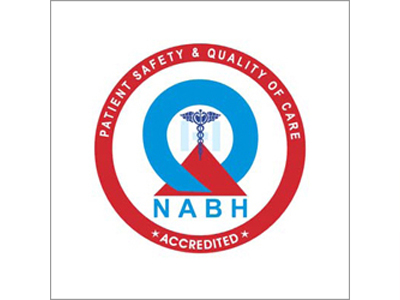Dr Rohit Dureja
Consultant,
The Cornea Institute,
GMR Varalakshmi (GMRV) Campus, Visakhapatnam
L V Prasad Eye Institute
Corneal blindness is the primary cause of blindness for those younger than 50 years in India. A corneal ulcer is a major cause of corneal blindness worldwide and trauma to the eye (injury) is the most common risk factor for corneal ulcer. A corneal ulcer is an eye infection that causes the formation of a white spot in the anterior (front) part of the eye along with decreased vision. It is associated with other signs and symptoms like swelling of the eyelids, pain, redness, watering and discharge in the eye and sensitivity to light (photophobia).
'Due to its potential to permanently affect sight, a corneal ulcer is a medical emergency and can cause blindness if not promptly treated. Complications of untreated or inadequately treated corneal ulcers include cloudy scar that impairs vision, perforation of the cornea, raised eye pressure, cataract formation and spread of infection to other parts of the eye (scleritis, endophthalmitis, panophthalmitis) which may require removal of eye in few rare cases to prevent the spread of infection to brain or another eye. If you have symptoms suggestive of corneal ulcer, do seek immediate care', says Dr Rohit Dureja, Cornea Consultant, GMR Varalakshmi (GMRV) campus, L V Prasad Eye Institute, Visakhapatnam.
You are at risk of getting a corneal ulcer if you:
- Suffered an eye injury or infection (including injury with vegetable/fruits matters, e.g. - incidental spillage of vegetative material into the eye while eating nuts and corn or injuries sustained while working on the farms)
- Use steroid eye drops
- Have dry eyes
- Have diabetes mellitus
- Don’t take appropriate care while wearing your contact lenses
Treatment:
- Eye drops containing antibiotics (for bacterial infections), antifungals (for fungal infections) and antivirals (for viral infections) are the usual treatments.
- Steroid eye drops are occasionally prescribed to reduce eye inflammation and swelling. Because steroid drops may worsen an infection, you should follow your doctor’s recommendations about the use of steroids drops.
- Oral medication or injection could be prescribed if necessary.
- Corneal transplant surgery where the damaged cornea is replaced with a healthy donor cornea is done when
> The ulcer has healed after treatment with medication, sometimes a significant corneal scar remains which reduces the vision. In this case, a transplant can be done to improve vision.
> It is severe and cannot be treated with medications.
Prevention:
- If you have any eye problem, see your eye doctor as soon as possible; even minor injuries can lead to corneal ulcer
- Avoiding over the counter usage of steroid eye drops
- Wear eye protection when working in dusty environment
- If you are a contact lens user:
> Always wash the hands before handling lenses
> Take out your lenses before sleeping
> Carefully clean them with lens solution, not with tap water.
> Store the lenses overnight in disinfecting solution
> Regularly clean your lens case
> Take out your lenses whenever your eyes are irritated
> Don’t put them back in until your eyes feel better
> Replace your contact lenses as per your doctor advice
Cornea Services at GMR Varalakshmi Campus:
- L V Prasad Eye Institute offers comprehensive, advanced speciality care - cornea services (including diagnostics and surgical care) with the help of trained cornea specialists and microbiologists for successful management of corneal ulcers
- Over 500 cases of corneal ulcers were treated at the Visakhapatnam campus from April 2021 to March 2022
- Research to improve the treatment modalities and outcomes of corneal ulcer is continuing


